Commander Says IRGC Ready To Train Iraqi Armed Forces
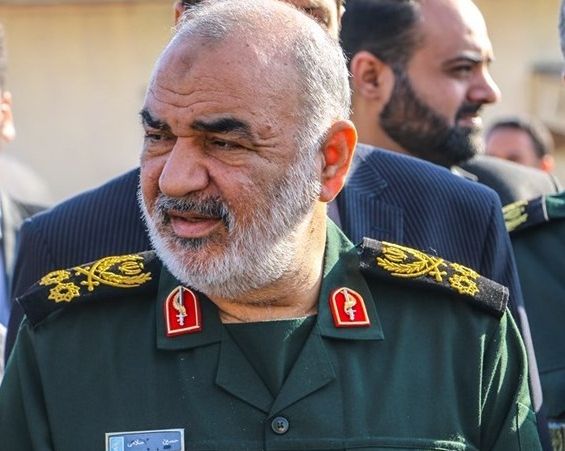
The Commander of Iran’s Revolutionary Guard Hossein Salami says the IRGC is ready to expand its ties with the Iraqi military and train its armed forces.

The Commander of Iran’s Revolutionary Guard Hossein Salami says the IRGC is ready to expand its ties with the Iraqi military and train its armed forces.
General Salami said the Islamic Republic is ready to play an effective role in Iraq. He further noted that in addition to advisory assistance and exchange of experiences, the IRGC is ready to train Iraqi armed forces at different levels.
Salami made the comments during his Monday meeting with Iraq’s Defense Minister Thabet Mohammad Said Reda.
“We are after a strong Iraq while the Americans and Zionists are seeking to dominate the region and create insecurity in Iraq and Iran,” added Salami.
Iran’s IRGC created large militia forces in Iraq in mid-2010s to fight against the Islamic State group, but also uses them to maintain influence in Iraqi politics. Many Iraqis have protested against Tehran’s interference in their country.
Iran's defense minister, Mohammad Reza Ashtiani, also stressed on Sunday that Iran is willing to share its expertise with Iraq to help it achieve "independence" and "self-sufficiency" in the military and defense industry.
Ashtiani's remarks came in a joint press conference with his Iraqi counterpart, Reda, who arrived in the Iranian capital on an official visit on Friday.
"Iran and Iraq share a close geopolitical connection that encompasses national, religious, cultural, economic, and energy-related areas. We should cherish this connection as a factor of unity and solidarity between the two countries. It is a strong point that the enemies of both countries want to undermine," he said.
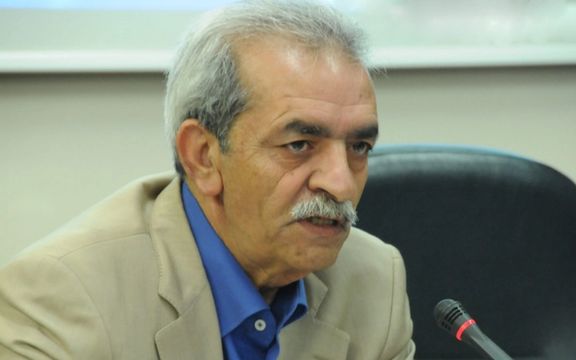
Over 40 percent of candidates running for chambers of commerce in Iran who are somewhat independent of the government were disqualified by a supervisory body.
Disqualifications have been so widespread that the actual elections of chambers of commerce, industries, mines and agriculture often referred to as “private sector’s parliament”, had to be postponed from February 29 to March 10 to allow investigation of candidates’ complaints.
Mehdi Karbasian, a former deputy minister of industries, mines and trade, who represents several high-profile companies, and Masoud Khansari, the incumbent chairman of Tehran Chamber of Commerce, the most influential chamber in the country, are among the candidates who have been disqualified.
Khansari had recently disclosed more than $10 billion of capital outflow from Iran per year.
In a commentary entitled “Butchering Chamber of Commerce Election [Candidates] Following Increase of Businessmen’s Criticism of Raisi Government”, Aftab News website on Saturday said disqualified candidates believe due to profuse criticisms of the government policies by businessmen and chambers, the ministry of industries, mines and trade has decided to take control and only allow its own supporters to take the key positions.
Iran’s economic crisis has deepened in recent months as the national currency has lost more than half of its value and hyper-inflation is feared in the next few months. Prominent businessmen holding positions in chambers of commerce have urged the government to change its foreign policy and end US economic sanctions.
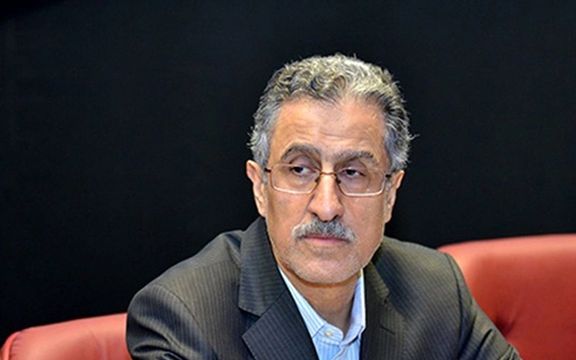
The vetting was based on a recent regulation that required candidates to have at least two consecutive years of membership in chambers of commerce, to have paid insurance for a minimum of twenty employees during the past year, to have had a minimum annual turnover of 150 billion rials, and to have also been awarded for exports by the Trade Development Organization.
The boards in every city where the chamber of commerce elections were to be held consist of representatives of the Chamber of Commerce of Iran and the ministry of industries, mines and trade.
One of the barred candidates who did not want to be named, told Aftab News that that disqualifications were more a result of the candidates’ political leanings than the new regulations. “The ministry of industries, mines and trade and the government are trying hard to shift the control of the chambers, particularly the chambers of Iran and Tehran, to a certain political faction,” he said.
Aftab News which is believed to be close to former President Hassan Rouhani and the Moderation and Development Party, said most of the disqualified candidates have reformist affiliations.
The reformist Etemad newspaper wrote last week that those who are currently key members of the chambers were very unlikely to be allowed to run again. The newspaper predicted that the elections of the “private sector parliament” would be engineered to shift the control to government supporters.
The current chairman of the Iran Chamber of Commerce, Gholam-Hossein Shafei and some other high profile former members did not nominate themselves to run.
Chambers of commerce often produce economic reports that the government finds embarrassing while some prominent members such as Shafei have been vocal critics of the government’s lack of communication with representatives of the private sector over its economic policies.
Shafei recently strongly criticized the government’s proposed budget arguing that it would create serious challenges for the private sector.
Referring to the current foreign exchange rate crisis Saturday, a member of Tehran Chamber of Commerce, Ahmadreza Farshchian, described the past four years as the most difficult years for the private sector since the end of the Iran-Iraq War (1980-1988).
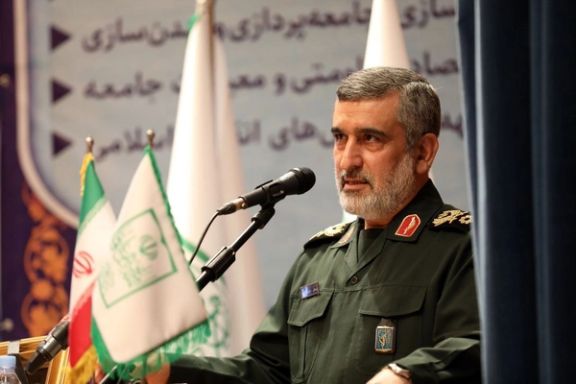
Washington has warned Tehran saying it would respond to any attacks after a top IRGC commander claimed the Islamic Republic intends to kill former US officials.
In an emailed statement to Al Arabiya English, the US State Department warned the clerical regime that “any attempt to harm US citizens, including those who served in the past, would be met with a strong response.”
Amirali Hajizadeh, the head of the Revolutionary Guards aerospace force, on Saturday spoke of Iran's often repeated threat to avenge the US killing of Qassem Soleimani, Tehran’s top military and intelligence operator in the Middle East, saying "We are looking to kill (former US President Donald) Trump."
"God willing, we are looking to kill Trump. (Former Secretary of State Mike) Pompeo ... and military commanders who issued the order (to kill Soleimani) should be killed," Hajizadeh said in the televised interview.
A US State Department spokesperson also reiterated Washington’s commitment to work with its allies and partners to deter and respond to any attacks carried out by Iran.
“Iran would test our resolve to protect our citizens at great peril. As the Administration has consistently made clear, the United States will protect and defend its citizens. This includes those serving the United States now and those who served in the past,” a State Department spokesperson said.
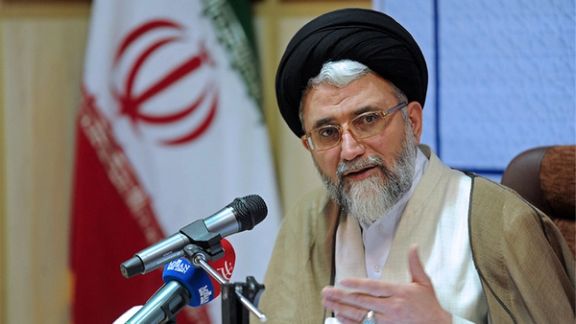
Two days after explosions and gunfire in Karaj near Tehran that government media described as military drills, Iran's minister of intelligence called it a "fake operation by the enemy".
Esmail Khatib said that "The enemies faked an operation in Karaj so that they could use it to gain prestige for themselves, but such fake news and propaganda will have a short life."
He did not clearly say if there was an attack and what was targeted, although there was visual evidence of explosions and anti-aircraft fire.
On Thursday night, residents in the area reported on social media that first a series of explosions were heard, and then anti-aircraft guns began firing into the air.
One of the videos shared by the citizens showed anti-aircraft tracer rounds soaring into the sky as an explosion could also be seen on the ground. There was no prior public notification of planned military exercises.
However, the official government news website IRNA citing an informed source, described the event as military drills by the IRGC near Karaj, during which targets were attacked by anti-aircraft systems.
A military installation in the central province of Esfahan was recently attacked by unknown drones and the Islamic Republic claimed Israel was behind the attack; however, the Israeli authorities did not comment on the matter.
Regarding the Esfahan attack, Khatib said “a team was arrested in Esfahan, and despite the training they received, it failed to carry out its operation.”
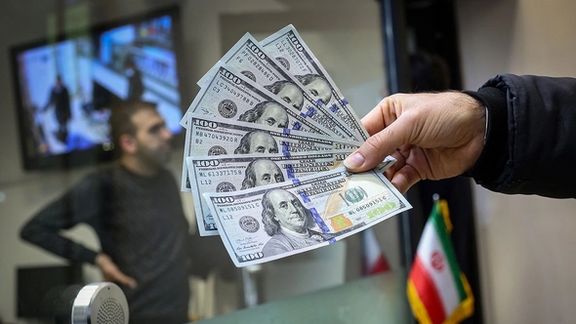
The rial’s plunge to 575,000 against the US dollar Saturday exacerbated chaos in several of Iran's major markets and brought many businesses to near standstill.
The government’s official rate of 417,500 for the dollar on Saturday meant very little. Availability of foreign currency at that rate is very limited which drives buyers to the curbside black market.
Fluctuations in the foreign currency exchange rates have immediate effect on the prices of several other commodities including gold, jewelry, and vehicles -- which many Iranians buy for investment or to preserve the value of their savings -- as well as electronic devices such as computers and smart phones and even home appliances.
The property market usually reflects the changes in exchange rates after a period of around 30 days but buyers and sellers both appear very apprehensive as the rial has been rapidly falling daily for about a week. No one can be certain how far the currency will fall and is not sure about any business decision.
The deep plunge of the rial has also affected many businesses where pricing is not as obviously reflective of foreign currency rates, as is the case with mobile phones and cars.
The price of mobile phones, for instance, rose sharply Saturday with many retailers preferring to hold on to their stock in anticipation of further fall of the rial. According to Etemad newspaper, an iPhone 13 Pro Max which sold for one billion rials ten days ago was priced at 1.2 billion on Thursday when the dollar traded around 560,000 on the street. The price of other brands and models such as Samsung phones has also risen accordingly.
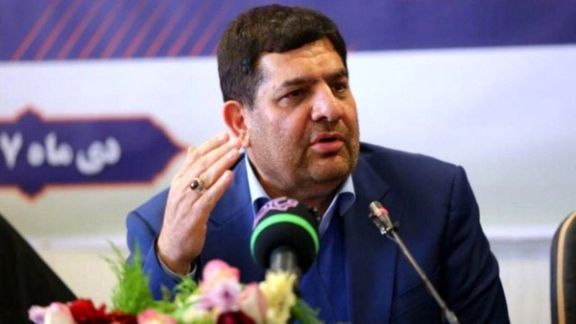
Some textile retailers and goldsmiths in the Grand Bazaar of Tehran, for instance, closed their shops Saturday afternoon as the rial continued to fall. In such circumstances, retailers as well as wholesalers are too reluctant to sell for the fear of not being able to replenish their stock with the ‘worthless’ money they earn.
The country is also suffering from an inflation rate of well over 50 percent.
The parliament held an extraordinary, closed session with First Vice President Mohammad Mokhber Saturday morning regarding rials fall and the chaos it has created for businesses.
Once again, Mokhber insisted that the problems which already existed when the administration of President Ebrahim Raisi took over in August 2021 are “gradually diminishing” and that the foreign currency market “will soon be stabilized” while the governor of the Central Bank of Iran (CBI), Mohammadreza Farzin, told lawmakers that only the rates announced by the bank’s new portal were “real”.
Many, however, believe that the rial’s depreciation will continue as long as the Islamic Republic does not reach an agreement with world powers over its nuclear program that can lift sanctions, and stop provoking the international community with rash remarks and statements.
Economy Minister Ehsan Khandouzi tried to convince the parliament that “hidden hands” were responsible for the chaos in the market and that these “saboteurs have been identified.” Security, intelligence, and judiciary bodies will soon deal with these people, he said.
The Islamic republic has resorted at times of similar to hanging individuals whom it accused of “corruption on earth” through their economic activities including destabilizing the foreign currency and gold markets at. Officials also usually accuse foreign governments and “enemies” whenever upheavals in the markets cause popular discontent.
In November 2018, Vahid Mazloumin, who came to be known in the media as “The Sultan of Gold Bullions” and another businessman Mohammad-Esmail Ghasemi were hanged in Tehran after being convicted of “creating a network to destabilize the country’s economic, foreign currency, and financial systems by conducting illegal transactions and large-scale smuggling of foreign currency and gold bullions.”

The international financial watchdog FATF has kept Iran and North Korea on its back list during its latest meeting that ended on Friday.
The Paris-based Financial Action Task Force is an inter-state organization that leads global action to tackle money laundering, terrorist and proliferation financing. Its recommendations impact decisions by governments and private sector firms in making banking and investment decisions.
Iran and North Korea are the only two countries on FATF’s black list, and all member states are urged to apply enhanced due diligence in dealing with them.
Experts say that even if sanctions imposed by Western countries on Iran are lifted, Tehran must adhere to FATF standards in banking and financial controls to be considered a safe business partner by international actors.
Most important are measures to prevent money laundering and financing of terrorism.
Although FATF’s decision comes as no surprise given Tehran’s refusal to accept its demands, it coincides with unprecedented financial and economic chaos in Iran in recent days.
Iran’s previous government submitted legislation to parliament in 2017 to adopt laws to implement FATF’s standards, but the hardliners have since prevented the final approval of the laws.
Opponents argue that if Iran accedes to FATF demands it will not be able to provide financial help to allied groups in the region that are part of Tehran’s “axis of resistance”.
These groups, such as the Lebanese Hezbollah and some Palestinian militant organizations, are designated as terrorist by some countries and act as proxy forces to help the Islamic Republic spread its influence in other countries.